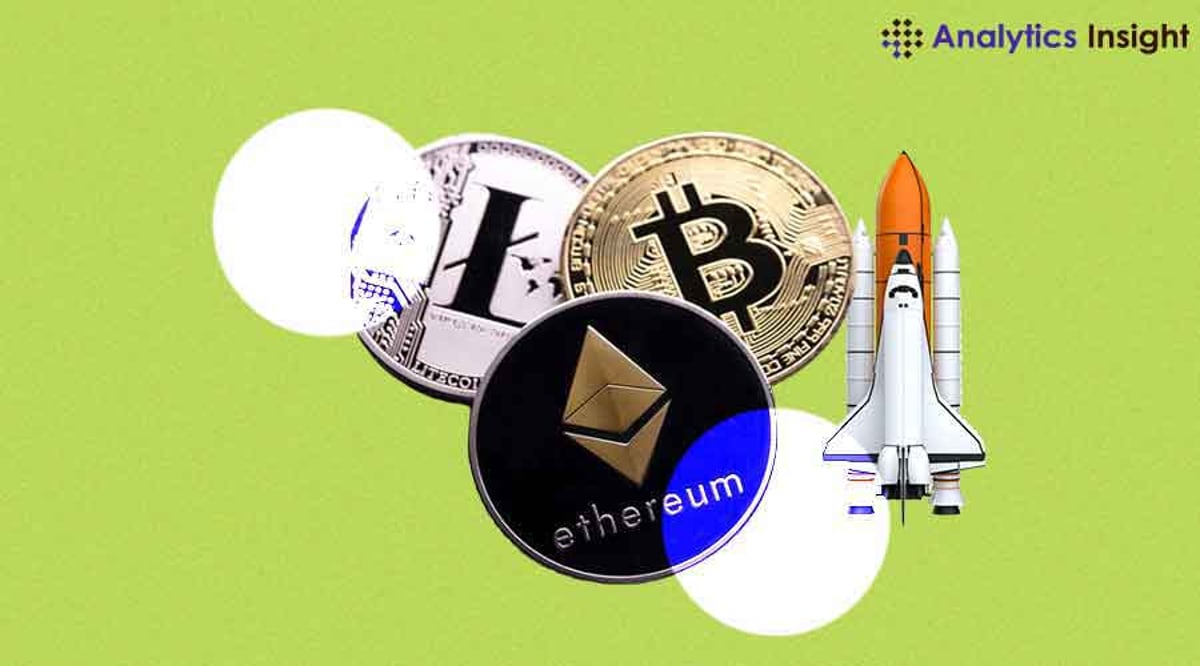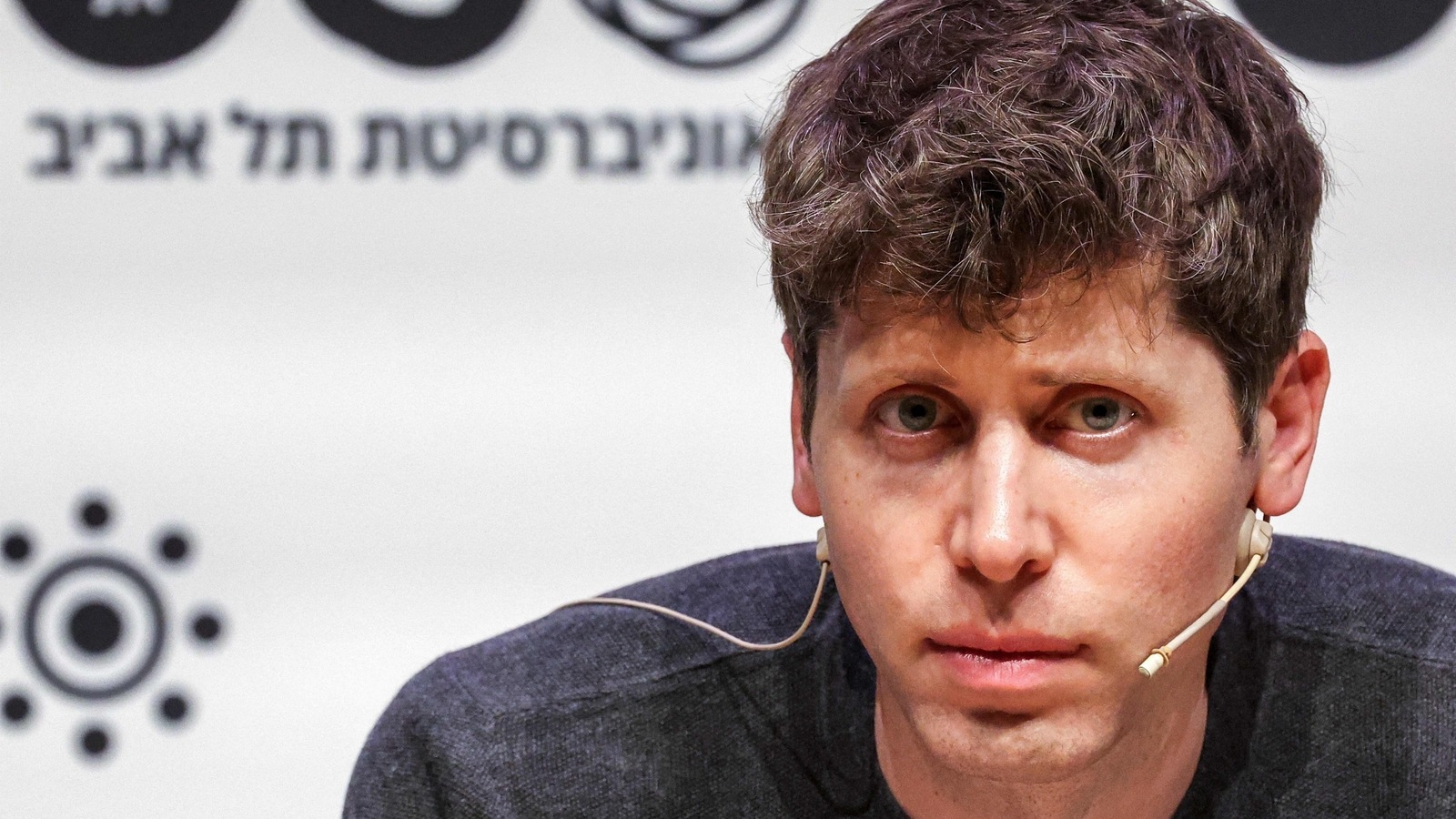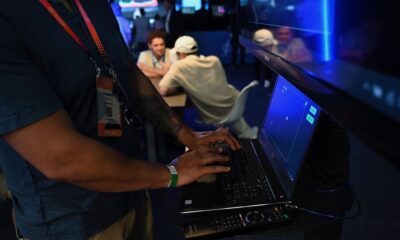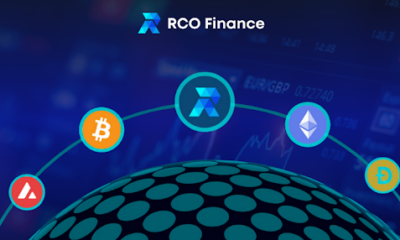Tech
Ranaex makes the leap into the world of cryptocurrencies with the launch of RNAC

Ranaex, a major player in the technology and financial sectors, is on the verge of a revolutionary move that promises to reshape the landscape of cryptocurrency. With the launch of its latest digital asset, RNAC, scheduled for April 29, 2024 at 8:30am ETD, the industry is abuzz with anticipation and speculation. The RNAC is poised to redefine the reigns of blockchain technology and finance, offering innovative features and capabilities that could revolutionize the cryptocurrency market.
The heart of RNAC’s appeal lies in its advanced technological infrastructure. Designed with cutting-edge cryptographic security features, RNAC boasts unprecedented transaction speeds and significantly reduced transaction costs compared to its counterparts. At the heart of RNAC’s technological breakthrough is its new consensus algorithm, designed to effectively scale mining operations while minimizing the environmental impact associated with traditional mining practices. By optimizing both economic and ecological aspects, RNAC sets a new standard in the cryptocurrency landscape, positioning itself as a benchmark in blockchain innovation.
The introduction of RNAC holds immense potential for the cryptocurrency market and carries significant economic implications. With its promise of lower fees and faster transactions, RNAC is poised to attract a substantial user base from existing platforms struggling with scalability issues and high operational costs. Financial analysts draw parallels between the potential impact of RNAC and the rise of Binance Coin (BNB) during Bitcoin halving events, suggesting that RNAC could emerge as a key player in the cryptocurrency market offering uniquely tailored advantages for specific market conditions.
Furthermore, the debut of RNAC has broader economic ramifications, potentially accelerating the acceptance of cryptocurrencies as viable alternatives to traditional fiat currencies. This shift could accelerate the adoption of digital assets in everyday transactions, expanding the cryptocurrency market’s influence on global financial systems and paving the way for a more decentralized financial future.
To ensure successful implementation and adoption of RNAC, Ranaex has formed strategic partnerships with leading financial institutions and technology companies. These collaborations aim to seamlessly integrate RNAC into existing payment systems and e-commerce platforms, improving its usefulness and value as a payment method. However, RNAC is subject to regulatory scrutiny, as all new cryptocurrency launches do. Ranaex has proactively worked with financial regulators across jurisdictions to ensure compliance with applicable laws and regulations, setting the stage for broader acceptance and adoption of RNAC.
Despite these efforts, challenges persist in ensuring widespread acceptance of RNAC. Regulatory bodies around the world are increasingly scrutinizing the security, privacy and financial risks associated with cryptocurrencies, posing hurdles for Ranaex to overcome. However, the company’s transparent approach to regulatory engagement sets a precedent for how new cryptocurrencies navigate the complex regulatory landscape.
Integral to RNAC’s success is developer support and the cultivation of a vibrant community. Ranaex has made significant investments in fostering a strong community around RNAC through forums, hackathons and partnerships with educational institutions. This community-driven approach not only encourages innovation within the RNAC ecosystem, but also builds user loyalty and trust, which is essential for long-term success.
For investors, RNAC represents a new opportunity in the cryptocurrency sector. Experts recommend monitoring RNAC’s initial market performance and the reaction of the broader market to assess its long-term viability and profitability. Considerations such as the technical fundamentals, regulatory environment and market acceptance of RNAC should inform investment decisions, ensuring that investors are well positioned to capitalize on potential opportunities.
As the countdown to the launch of RNAC begins, all eyes are on Ranaex to deliver on its promises. While the future of RNAC remains uncertain, its introduction marks a pivotal moment in the continued evolution of cryptocurrency and blockchain technology. Whether RNAC reaches new heights or encounters obstacles along the way, its launch marks the dawn of a potential new era in the realm of digital currencies. On April 29, 2024, at 8:30am ETD, prepare to witness history in the making as RNAC takes its place in the ever-evolving world of cryptocurrency.
Conclusion:
Ranaex’s upcoming launch of RNAC heralds a pivotal moment in the evolution of cryptocurrency. With its advanced technological infrastructure, market disruption potential, and strategic partnerships, RNAC has the potential to become a transformative force in the cryptocurrency landscape. However, regulatory challenges and market dynamics can pose obstacles along the way. However, the introduction of RNAC highlights the continued evolution of blockchain technology. As investors and enthusiasts eagerly await its debut on April 29, 2024, at 8:30 am ETD, RNAC stands as both a testament to progress and a beacon of possibility in the ever-expanding world of digital currencies.
Tech
German data regulator is probing crypto project Worldcoin, official says | Technology news

A German data watchdog has been investigating OpenAI CEO Sam Altman’s Worldcoin project since late last year due to concerns over its large-scale processing of sensitive biometric data, the regulator’s president told Reuters.
Worldcoin, launched last week, requires users to provide iris scans in exchange for a digital ID and, in some countries, free cryptocurrency as part of plans to create a new “identity and financial network.”
The Bavarian State Office for Data Protection Supervision began investigating Worldcoin in November 2022 due to concerns that the project aimed to process “sensitive data on a large scale” using new technology, Michael Will told Reuters, president of the state regulator, in emailed comments on Friday.
Will said the Bavarian state regulator is the lead authority investigating Worldcoin under European Union data protection rules because Tools For Humanity, the company behind Worldcoin, has a German branch there.
“These technologies are at first glance neither established nor well analyzed for the specific main purpose of processing in the field of financial information transfer,” Will said.
This poses a number of risks, including whether users have given explicit consent to the processing of their highly sensitive biometric data based on “sufficient and clear” information, Will said.
Worldcoin did not immediately respond to a request for comment. Its website describes its network as “privacy-protective” and says that personal data is stored in encrypted form.
The Worldcoin Foundation, a Cayman Islands-based entity, told Reuters by email last week that it complies with European Union rules and will continue to cooperate with government bodies’ requests for information about its privacy and practices of data protection.
Since the project’s launch, people’s faces have been scanned by a shiny spherical “sphere” at recording sites around the world, including France, Germany and Spain. Worldcoin says 2.1 million have signed up, most during a trial period over the past two years.
Privacy activists have long raised concerns about the large-scale collection and storage of biometric data, which could increase surveillance or target certain demographic groups.
Several European regulators see Worldcoin as a matter of interest and have requested information, Will added.
France’s privacy watchdog told Reuters on Friday that the legality of Worldcoin’s data collection “seems questionable.”
Britain’s data regulator also said it would investigate the project.
First upload on: 01-08-2023 at 09:20 IST
Tech
Kenya suspends worldcoin eyeball scanning project

Kenya’s Ministry of Home Affairs has suspended Worldcoin’s operations in the East African nation, as local authorities investigate possible security and data protection risks associated with the eye-scan cryptocurrency project.
“The government has immediately suspended the activities of Worldcoin and any other entity that may similarly engage the people of Kenya until relevant public agencies certify that there is no risk to the general public,” the government said on Wednesday. Interior Minister Kithure Kindiki in a statement.
Worldcoin, launched last week, is an effort to create a global network of digital identities by using a small device called a “sphere” to scan people’s eyeballs. This identity, or World ID, grants its holder “proof of personality” in Worldcoin jargon. Users are rewarded for participation with Worldcoin tokens.
Read also: Are you looking for a smartphone? To check your mobile tracker
More than 2 million people have signed up for a World ID so far, reflecting the new compensation model and the reputation of one of its founders, Sam Altman, CEO of OpenAI, who created the popular chatbot service ChatGPT.
In addition to the digital identity, some Kenyans received 7,000 shillings ($49) in cash incentives and crypto tokens, which attracted thousands more to recruitment centers, local outlet Citizen Media reported on its website .
The Capital Markets Authority of Kenya said Worldcoin products are unregulated in the country and advised people to “be wary of potential fraudulent schemes that may emerge in the over-the-counter crypto token market,” according to a statement emailed Wednesday.
Worldcoin did not immediately respond to an emailed request for comment.
Tech
Scrutiny of Worldcoin iris scanning crypto project grows | Technology news

A growing number of governments around the world are taking a hard look at Worldcoin, a crypto project co-founded by OpenAI CEO Sam Altman and launched in July.
Nearly 2.3 million people around the world have signed up to have their irises scanned by Worldcoin’s “orb” devices in exchange for a digital ID and free cryptocurrency.
Altman says his ID will allow users to, among other things, prove online that they are human, particularly in a future world dominated by artificial intelligence.
Worldcoin has drawn criticism from privacy activists for its data collection. It said biometric data is deleted or stored in encrypted form and that it is “committed” to cooperating with regulators.
Here are the latest actions taken by governments:
ARGENTINA
In Argentina, where Worldcoin says interest in the project is strong, data regulator Agencia de Acceso a Informacion Publica (AAIP) said last month it was investigating Worldcoin over data collection, storage and use personal.
In a letter dated August 7, the AAIP asked Worldcoin for information on the project, including risk mitigation and the “legal basis for the processing of personal data.”
GREAT BRITAIN
Britain’s data regulator said in July it would review Worldcoin.
“We note the launch of Worldcoin in the UK and will investigate further,” the Information Commissioner’s Office said.
FRANCE
French data watchdog CNIL carried out “checks” at Worldcoin’s Paris office this week, a spokesperson said on August 31.
The CNIL had previously said it was aware of the Worldcoin project and that the legality of the biometric data collection “seems questionable”.
GERMANY
A German data watchdog has been investigating Worldcoin since late last year due to concerns over its large-scale processing of sensitive biometric data.
Financial regulator Bafin is also investigating the digital currency, according to German business newspaper Handelsblatt.
KENYA
Kenya suspended local Worldcoin operations in August while the government assesses potential public safety risks.
A preliminary review had raised concerns, including that obtaining consumer consent in exchange for a monetary reward bordered on an inducement, the Communications Authority of Kenya and the Office of the Data Protection Commissioner said.
PORTUGAL
Portugal’s data regulator, the CNPD, has inspected Worldcoin’s local data collection operation and has been in contact with the Bavarian data protection authority in Germany, a spokesperson said.
The CNPD will make the outcome of its investigation public “in due course,” he said.
Tech
Medical technology developer Semler Scientific invests another $17 million in Bitcoin

Healthcare technology developer Semler Scientific announced an additional purchase of 247 BTC for $17 million in cash.
Santa Clara-based healthcare technology company Semler Scientific has acquired an additional 247 BTC for $17 million in cash as part of its ongoing strategy to hedge against inflation risks.
According to Press release on June 7, the acquisition brings Semler Scientific’s total Bitcoin reserves at 828 BTC, purchased at a total cost of $57 million. Commenting on the purchase, Semler Scientific CEO Doug Murphy-Chutorian highlighted the company’s commitment to Bitcoin as a “compelling investment and reliable store of value.”
“We will continue to pursue our strategy of buying Bitcoin in cash.”
Doug Murphy-Chutorian
The latest transaction follows a substantial purchase that occurred just a week earlier when Semler Scientific acquired 581 BTC for $40 million, indicating an average price of around $68,850 per coin. Semler Scientific President Eric Semler highlighted Bitcoin’s potential as a scarce and limited asset that serves as a reasonable hedge against inflation and a safe haven amid global instability.
“We also believe its digital and architectural resilience makes it preferable to gold, which has a market value approximately 10 times that of Bitcoin.”
Eric Semler
With this purchase, Semler Scientific now ranks 20th among public companies that hold Bitcoin on their balance sheets, according to BitcoinTreasuries.NET. The company surpasses cryptocurrency mining firm Argo Blockchain, which holds 11 BTC, but lags behind Chinese software company Meitu, which holds 940.9 BTC.
-

 Tech1 year ago
Tech1 year agoThe Latest Tech News in Crypto and Blockchain
-

 DeFi1 year ago
DeFi1 year ago🪂EigenLayer Airdrop Claims Go Live
-

 Videos1 year ago
Videos1 year agoLIVE FOMC 🚨 Could be CATASTROPHIC for Altcoins!
-

 DeFi1 year ago
DeFi1 year agoDeFi will make a big comeback, says Bernstein
-

 DeFi1 year ago
DeFi1 year ago🥛 The “war on DeFi” continues ⚔️
-

 DeFi1 year ago
DeFi1 year agoTON Network Surpasses $200M TVL, Boosted by Open League and DeFi Growth ⋆ ZyCrypto
-

 DeFi1 year ago
DeFi1 year ago🏴☠️ Pump.Fun operated by Insider Exploit
-

 Altcoins1 year ago
Altcoins1 year agoTerra (LUNA) Lost 99.999% of Its Value — A Reminder of the Risks Associated with Altcoins ⋆ ZyCrypto
-

 DeFi1 year ago
DeFi1 year agoOpenAI’s ChatGPT Selects Top DeFi Tokens to Grow from $100 to $10,000 in 2024
-

 Altcoins1 year ago
Altcoins1 year agoBitcoin Breakup Pattern: Altseason here 🌐 Best Altcoin Investments
-

 Videos1 year ago
Videos1 year agoSTOCK MARKET FUD! ⚠️ [Why This Is GREAT For Bitcoin Traders!]
-

 DeFi1 year ago
DeFi1 year ago🚀Bitcoin Surpasses $70,000 to Kick Off June











